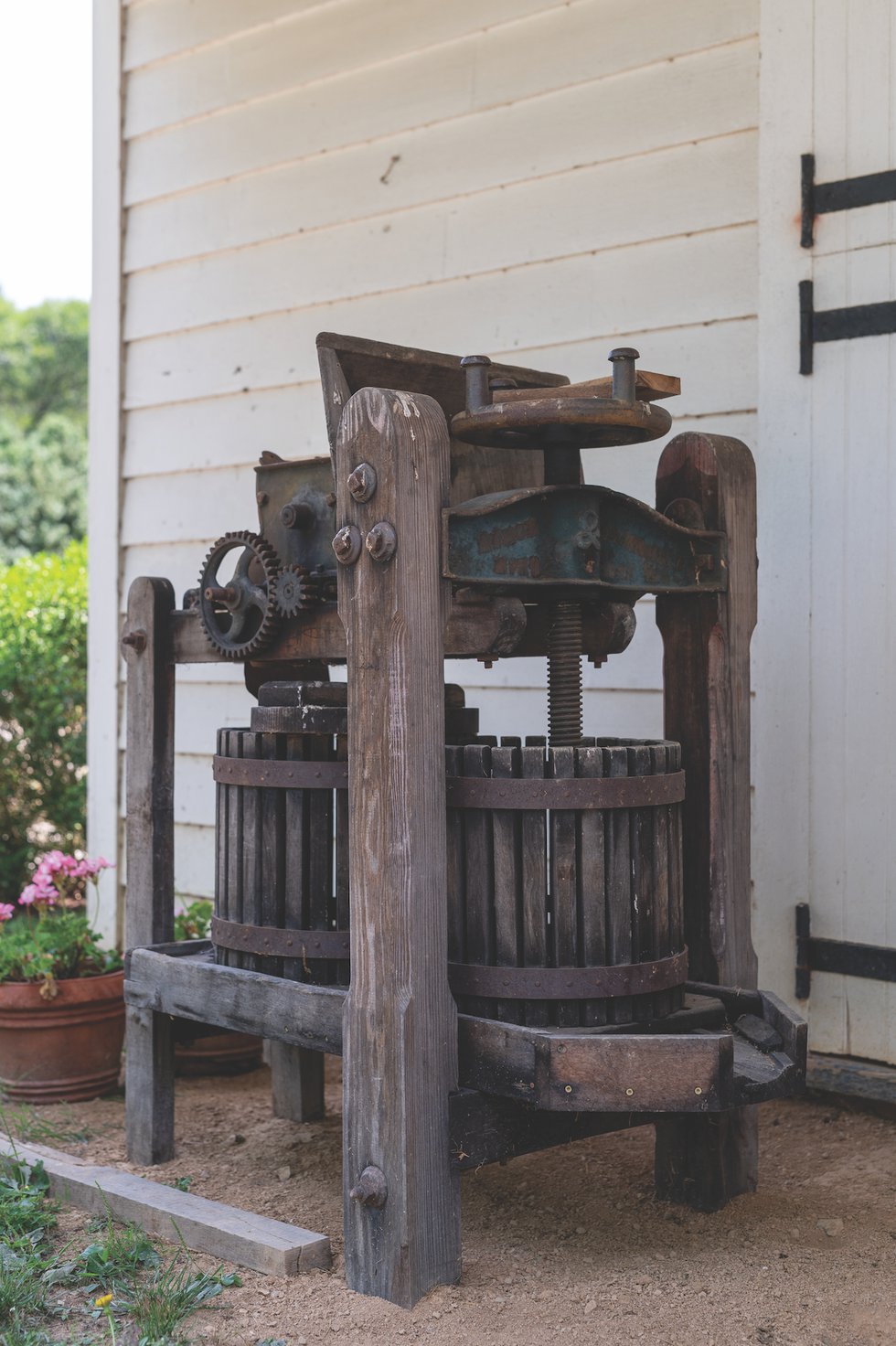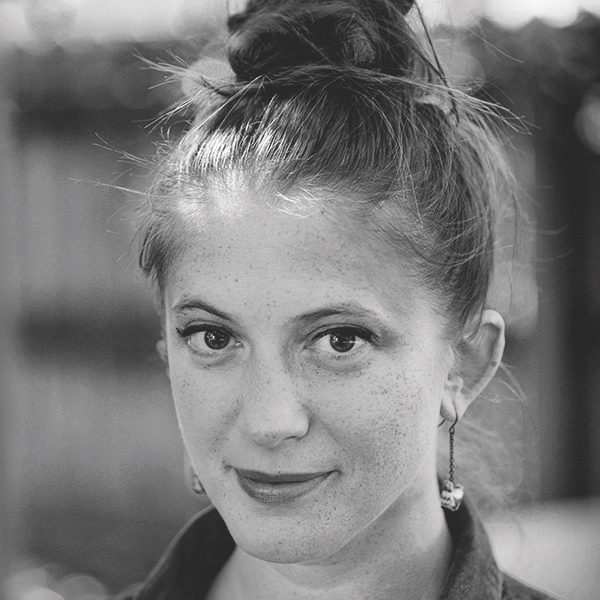At Troddenvale Cider in Bath County, Will and Cornelia Hodges are coaxing complexity from the humble apple.

On a crisp September morning, Will Hodges crosses the yard from his farmhouse to his cider cellar with bloodhounds Fanny and Hooch at his heels. There, he is greeted by bushels of apples—Harrison, Black Twig, and Virginia Hewe’s Crab—picked from the cider orchard at the historic Oakley Farm.

Over the next few weeks, the apples will go through a process of spontaneous fermentation in oak barrels that will transform the humble fruit into something worthy of a wine glass. This is not your brew-pub cider. Will and his wife, Cornelia, are part of a growing movement to redefine the genre, putting the hills of Western Virginia on the cider-making map.
Troddenvale Cider at Oakley Farm is an experiment in coaxing flavor and depth from Virginia’s state fruit. For the Hodges, apple cider offers the same expressions of terroir as any good wine. Known as ciders of origin, they convey a sense of place in the final product. What ends up in the bottle can’t be reproduced in another part of the world; it’s a distillation of location, a true expression of their land.
“There’s an argument that apples don’t translate the terroir as much as grapes,” Cornelia explains. “But we feel apples actually translate terroir in a different way, maybe even more so due to genetic adaptation.” Apples have grown on the land at Oakley Farm, which Will and Cornelia bought from Will’s grandparents in 2018, for more than 200 years. And over that time, the Hodges say, the trees have adapted to their surroundings in unique and special ways.
“Apples are not native here,” says Will, noting that they originated in the mountains of Kazakhstan. This news may come as a surprise to Virginians, who assume apples are as American as, well, apple pie. “They fit this very comfortable role in our natural environment here where they don’t dominate or overproduce but they adapt to figuring out how to live on the outskirts.”

(Cornelia and Will Hodges in the barrel room.)
Understanding the apple’s evolution, Will says, is part of their approach to cultivating their own fruit, and it’s led them to practice a more regenerative, holistic style of orchard management, in pursuit of the highest quality ingredient possible.
Apple cider has a rich history in the US, from the country’s earliest days, when it was the beverage of choice among English settlers, to a dormant period when it seemed as though cider would be little more than a footnote in America’s beverage history. But now, in what seems to be a golden age of cider appreciation, wine-like craft ciders are finding their way to the market again. These two Bath County cider makers find themselves pioneers in the new frontier of this historied beverage.
A native of Warm Springs, Will met Cornelia when the two of them were working in Argentina, handling marketing and operations for a small wine producer. Sparks flew and, from there, the couple settled in Napa, where their work in the industry continued. Their experiences in wine opened their eyes to the potential of apple cider, a beverage on the rise in the U.S. that was ripe for a more thoughtful, sustainable approach.
Moving beyond modern winemaking techniques, toward a style of production that feels simultaneously old-world and new-school, Troddenvale is able to extract the fullness of the fruit. “That’s how we came to cider,” Cornelia explains, “[asking] where’s the texture, where’s the aroma, where’s the mouthfeel?” It’s that sense of curiosity and exploration that guides their hands, from farming to bottling.
“Let’s see what cider can do when we focus on ingredients with a wine approach—the definition of cider gets blown wide open.”
—Will Hodges, Troddenvale Cider

Though there are many parallels between Troddenvale’s ciders and natural wine—a concept that favors organically farmed grapes and traditional winemaking methods—Will and Cornelia are reluctant to hitch their cider to the natural wine wagon, preferring instead to emphasize the lack of intervention in their process. Troddenvale ciders allow the inherent characteristics of the apples—aromatics, texture, body—to stand alone, without the addition of sulfites, yeast, or other ingredients, producing in a way that’s comparable to the new school of winemaking in California, but with a sincere and fervent commitment to transparency.

To allow the fruit to speak for itself as Troddenvale does, requires a kind of zenlike approach, removing ego and expectation from the final product. The quality of the fruit is paramount. The Hodges practice regenerative farming techniques, sharing the land with the pastured poultry operation Fireside at Oakley Farm, whose grazing chickens return nitrogen and trace minerals to the soil while aiding soil aeration and providing ground pest control.
It’s a mutually beneficial relationship that echoes what’s happening underground, where a layer of mycorrhizal fungi exchanges essential nutrients with the tree roots in exchange for their sugar. And while it may sound complex, Will explains, the beauty of this system is its simplicity: Pruning techniques are simplified, the need for spraying is reduced, and most importantly, the ratio of fruit to tree is much higher—a huge benefit when your only ingredient is the fruit itself.
Apple pressing begins in August and continues until late in December. Once the apples are ground, they may be directly pressed to the barrel with all their gross and fine lees (the stems, seeds, and skins leftover from pressing, which enhance flavor and texture), or they may undergo a light maceration, soaking on their solids to evoke even more depth of flavor. Then comes fermentation, which, depending on the variety, can last anywhere from a few weeks to a few months.

The role of the cider maker at this stage is to taste and wait, and the Hodges check on each barrel on a weekly basis, to top off the barrel, take measurements, and make decisions about how long to allow the cider to age before racking off the sediment (transferring to another container while leaving the lees behind) and finally, bottling. “We’re trying to listen to fermentation and respond accordingly,” Will explains.
The resulting ciders are infinitely sessionable, the kind of beverage that invites conversation and contemplation. They drink like wine, with a broad range of flavors, from a springtime barnyard minerality to a cheek-puckering SweeTart with an off-dry, floral finish. “For most people,” Will explains, “cider is a simplistic beverage, a wine cooler. It’s not meant to evolve. It’s just meant to be captured as a recipe and consumed cold. If that’s the reference point, let’s see what cider can actually do when we focus on ingredients with a wine approach. It’s just letting that definition of cider get blown wide open.”
This fall, for the first time, guests to Oakley Farm will be able to visit a newly renovated tasting room in the stately, 100-year-old North Stable, which will also house Foodlore Provisions, a Troddenvale offshoot that began as a dinner series in 2017 before evolving, through pandemic necessity, into a weekly online market that connects shoppers to local pastured poultry and pork, grass-fed and grass-finished beef, and organic produce.
In addition to serving as an event space, the tasting room will allow Troddenvale to pour cider with a side of context, educating sippers as to its full potential—a world of possibility that Troddenvale seeks to explore, one barrel at a time. Troddenvale.com



How to Taste Cider
Glassware: Fluted glasses emphasize the effervescence of sparkling cider and help draw aromas up toward the nose.
Temperature: At 50-55 degrees, ciders open up to present their full structure of tannins and aromatics. Drier ciders can stand up to slightly warmer temperatures to show off their depth.
Pairing: Ciders like Troddenvale’s exhibit a broad range of flavors that, like wine but in their own unique way, pair well with food, from a rich butternut squash risotto to a light seafood salad.
Sharing: Don’t keep it all for yourself. Ciders like these are welcome, unexpected host gifts that one-up the usual bottle of wine.
This article originally appeared in the October 2021 issue.








